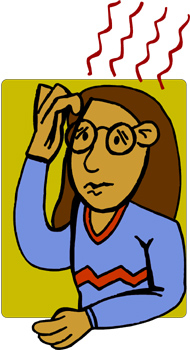Back in January many of you joined me in the “31 Minutes for 31 Days Challenge.” That jump started many of us for the new year.
In February I did my first 28-Day Challenge with two writing friends, and March began our second 28-day Challenge. (The Challenge has been to write at least 30 minutes daily.)
Strength in Numbers
Several of you have mentioned that you’d like to try an accountability challenge, and I’m going to start two of them on April 1st. They will each run for 30 days as we work together to become writers who write daily.
Today I’ll talk about the “why” behind daily writing practice. This coming Friday I will describe one of the challenges. Next Tuesday I will describe the second challenge–and the reasons for it. On Friday of next week, I’ll tell you how to sign up for one or both challenges.
“Many who want to be writers–who are in their hearts, writers–have followed the same beaten path that doesn’t come to a dead end so much as it peters out,” says Judy Reeves in one of my favorite writing books, A Writer’s Book of Days. “Even though their spirit longs for it, they have never made writing a priority in their lives; that is, they have never set aside a special, specific time for their writing. They don’t practice their craft.”
What’s So Special About Accountability?
I want to do these writing challenges with you because I’ve seen the huge difference this year that regular writing practice has made in my life. It isn’t just getting more writing done–although that is certainly true. Even nicer, I feel more like a writer. And when you feel like a writer, your confidence goes up INDEPENDENTLY of the market (whether you sell anything.)
And one thing is true: your writing really does get better.
Practice. Practice. Practice.
Writers are artists. We paint with words. And we need to practice our craft daily like other artists who are working on their craft.
No one expects a pianist to go from Chop Sticks to Cargenie Hall. No one expects a painter to go from paint-by-number pictures to a one man New York showing. Dancers, actors, singers, athletes, artists: we only get good at our craft by daily doing the drills.
Writing practice is simply making an appointment with yourself to write–and then showing up. You treat that commitment to write, even if it’s only for fifteen minutes, as sacred. Only true emergencies keep you from that appointment. (True emergencies–yours or other people’s–usually involve lots of blood or lots of smoke. If the interruption doesn’t fit that description, chances are good that it can wait until after you write.)
“Writing practice is showing up at the page,” says Judy Reeves. “One of the best things about writing practice is that it IS practice. It’s not supposed to be perfect. You’re free to make mistakes, fool around, take risks.”
As I said, I will be starting two writing challenges for the month of April. They will involve two types of writing, equally important to your career, I believe.
Why Daily Accountability?
Is a daily writing practice really that important? You won’t know until you try it for several weeks, at least. But according to Judy Reeves, it has great benefits.
“A daily routine that includes writing will have more benefits than you can imagine, but just for starters (a) the writing will come easier, (b) you’ll write more, (c) your writing will improve, and (d) you’ll realize that you are, after all, a writer.”
I don’t know about you, but all four of those reasons sound wonderful to me!
What has been your own experience with accountability?
 All of our actions have results, or consequences. That’s not news to anyone. And yet, do we act like we believe that?
All of our actions have results, or consequences. That’s not news to anyone. And yet, do we act like we believe that? work-outs have NOT led me to optimum health. My path led in 2012 to higher cholesterol, higher blood pressure, much less stamina, and more headaches.
work-outs have NOT led me to optimum health. My path led in 2012 to higher cholesterol, higher blood pressure, much less stamina, and more headaches.
 We hear a lot about setting writing goals. Do any of you have secret thoughts like these?
We hear a lot about setting writing goals. Do any of you have secret thoughts like these? Do you feel as if you’re forever running to catch up and keep up? Is finding any time at all to write a challenge for you?
Do you feel as if you’re forever running to catch up and keep up? Is finding any time at all to write a challenge for you?



